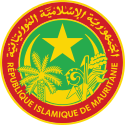
The politics of Zambia takes place in a framework of a presidential representative democratic republic, whereby the president of Zambia is head of state, head of government and leader of a multi-party system. Executive power is exercised by the government, while legislative power is vested in both the government and parliament. Formerly Northern Rhodesia, Zambia became a republic immediately upon attaining independence in October 1964.
The History of Benin since the 16th century, for the geographical area included in 1960 in what was then called the Republic of Dahomey before becoming the People's Republic of Benin.

Politics of The Gambia takes place within the framework of a presidential republic, whereby the President of The Gambia is both head of state and head of government, and of a multi-party system. Executive power is exercised by the government. Legislative power is vested in both the government and parliaments.

The Democratic Party of Albania is a conservative political party in Albania. It has been the largest opposition party in the country since 2013.
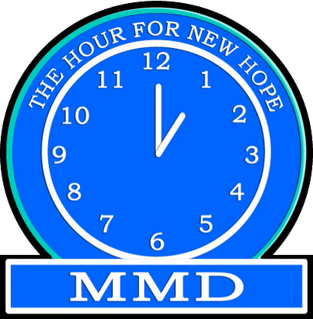
The Movement for Multi-party Democracy (MMD) also known as New Hope MMD is a political party in Zambia. Originally formed to oust the previous government, MMD controlled an absolute majority in parliament between 1991 and 2001, when its past leader, Frederick Chiluba was President of Zambia. Its election into power in 1991 ended the 27-year rule of President Kenneth Kaunda and his United National Independence Party (UNIP). It remained the dominant party within Zambian politics until the general elections of September 2011.
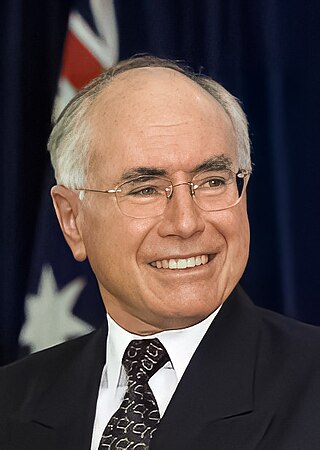
The 2001 Australian federal election was held in Australia on 10 November 2001. All 150 seats in the House of Representatives and 40 seats in the 76-member Senate were up for election. The incumbent Liberal Party of Australia led by Prime Minister of Australia John Howard and coalition partner the National Party of Australia led by John Anderson defeated the opposition Australian Labor Party led by Kim Beazley. Future Opposition Leader Peter Dutton entered parliament at this election. As of 2023 this was the most recent federal election to have a rematch in 11 years, and the most recent repeated election when Howard beat Beazley just 3 years earlier and until 2013 to have both major party leaders running in previous federal elections as major party leaders when in 2013, and the last for both major party leaders to appear in consecutive federal elections in 24 years.
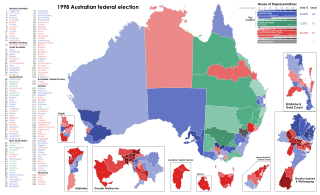
The 1998 Australian federal election was held to determine the members of the 39th Parliament of Australia. It was held on 3 October 1998. All 148 seats of the House of Representatives and 40 seats of the 76-seat Senate were up for election. The incumbent centre-right Liberal/National Coalition government led by Prime Minister John Howard of the Liberal Party and coalition partner Tim Fischer of the National Party defeated the centre-left Australian Labor Party opposition led by Opposition Leader Kim Beazley, despite losing the nationwide popular and two-party preferred vote. However, the Australian Labor Party gained seats from the previous election.

The 2004 Alberta general election was held on November 22, 2004 to elect members of the Legislative Assembly of Alberta.

General elections were held in Malaysia on Saturday, 10 May 1969, although voting was postponed until between 6 June and 4 July 1970 in Sabah and Sarawak. This election marked the first parliamentary election held in Sabah and Sarawak after the formation of Malaysia in 1963.

Bangladesh elects on national level a legislature with one house or chamber. The unicameral Jatiyo Sangshad, meaning national parliament, has 350 members of which 300 members are directly elected through a national election for a five-year term in single-seat constituencies while 50 memberships are reserved for the women who are selected by the ruling party or coalition. The Prime Minister is the head of the government. The president who is the head of the state is elected by the National Parliament. The president of Bangladesh is a ceremonial post and does not exercise any control over the running of the state.
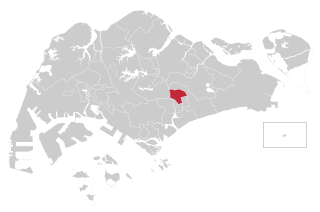
The Potong Pasir Single Member Constituency is a Single Member Constituency (SMC) in the central region of Singapore. It is managed by Jalan Besar Town Council. The current Member of Parliament of the constituency is People's Action Party (PAP) Sitoh Yih Pin.

General elections were held in Bangladesh on 7 May 1986. A total of 1,527 candidates contested the election. The result was a victory for the Jatiya Party, which won 153 of the 300 directly elected seats. Voter turnout was 61%. Bangladesh Nationalist Party, the winner of the previous elections, boycotted the election.

General elections were held in Bangladesh on 3 March 1988. They were boycotted by several major parties, including the Bangladesh Awami League, the Bangladesh Nationalist Party, the Communist Party of Bangladesh, Jamaat-e-Islami Bangladesh, the Bangladesh Krishak Sramik Awami League, the National Awami Party (Muzaffar) and the Workers Party of Bangladesh. The result was a victory for the Jatiya Party, which won 251 of the 300 seats. Voter turnout was 52%.

General elections were held in Bangladesh on 15 February 1996. They were boycotted by most opposition parties, and saw voter turnout drop to just 21%. The result was a victory for the Bangladesh Nationalist Party (BNP), which won 278 of the 300 directly elected seats. This administration was short-lived, however, only lasting 12 days before the installation of caretaker government and fresh elections held in June.
Parliamentary elections were held in Albania on 24 June 2001. The result was a victory for the ruling Socialist Party of Albania, which won 73 of the 140 seats, resulting in Ilir Meta remaining Prime Minister. Voter turnout was 54%.
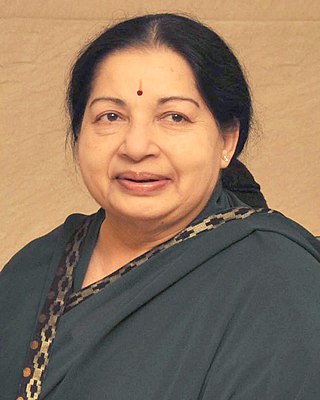
By-elections to Andipatti constituency was held in Tamil Nadu, India, on 21 February 2002. Three state assembly constituencies, Saidapet, Vaniyambadi, and Acharapakkam were held on 31 May 2002. In 2003, by-election in Sathankulam was held on 26 February 2003. During this by-election, the DMK and all the other major parties supported the Congress candidate, while only BJP supported the AIADMK candidate. This election came after the support of the Anti-conversion bill by AIADMK general secretary, Jayalalithaa and increasing tension between DMK and BJP due to the passage of the bill. The AIADMK win in Sathankulam was significant, since it completes the AIADMK sweep in by-elections after its victory in 2001. Also the anti-conversion bill was not an important factor in the congress-bastion Sathankulam, whose electorate consists of a large percentage of minorities.

General elections were held in Zambia on 27 December 2001 to elect a President and National Assembly. The result was a victory for the ruling Movement for Multi-Party Democracy, which won 69 of the 150 National Assembly seats and whose candidate, Levy Mwanawasa, won the presidential vote.

The West Bengal Legislative Assembly election, 2001 was held in Indian state of West Bengal to elect 294 members of the West Bengal Legislative Assembly.
The 1999 Rother District Council election took place on 6 May 1999 to elect members of Rother District Council in East Sussex, England. The whole council was up for election and the Conservative Party gained overall control of the council from no overall control.
Local elections were held in Serbia on 24 September 2000, concurrently with the first round of voting in the 2000 Yugoslavian general election and the 2000 Vojvodina provincial election. This was the fourth and final local electoral cycle to take place while Serbia was a member of the Federal Republic of Yugoslavia.
